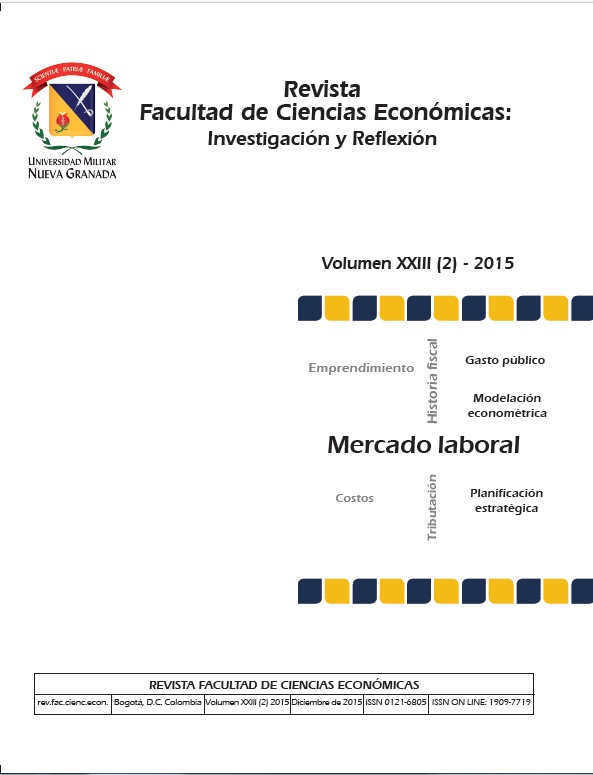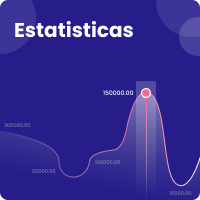Modelo de gerenciamento da demanda energética integral
Resumo
A gerência energética busca otimizar uma das mais complexas e importantes técnicas que conhecemos: o sistema de energia. Existe uma boa quantidade de métodos para a otimização da geração de energia e sua distribuição. O modelo da demanda energética integral (DSM) é uma estratégia para melhorar o sistema de energia no lado do consumo. Estende-se desde a política energética, a economia experimental, a teoria dos agentes, a melhora da eficiência energética mediante software de suporte e aplicativo, as tarifas de energia inteligente com incentivos para certos padrões de consumo, até os sofisticados sistemas de controle em tempo real dos recursos energéticos distribuídos. Este documento proporciona uma visão geral e uma taxonomia para o desenvolvimento de um modelo sistemático integral de DSM, que analisa os diferentes elementos de construção e oferece um panorama sobre como empregar um modelo de análise hierárquica de processos e avaliação integral difusa para sua implementação.Downloads
Referências
Boyle, S. (1996). DSM progress and lessons in the global context. Energy Policy, 24(4), 345–359. doi:10.1016/0301-4215(95)00142-5
Brañas-Garza, P., & Espinosa, M. P. (2011). Experimental and economy behavior. Papeles Del Psicologo, 32(2), 185–193.
Chen, H., Wang, X., Wang, X. & Chen, H. (2004). Design, implementation and application of a Java-based platform for electricity market auction experiments. Dianli Xitong Zidonghua/Automation of Electric Power Systems, 28(17), 22–26, 44.
Boyle, S. (1996). DSM progress and lessons in the global context. Energy Policy, 24(4), 345–359. doi:10.1016/0301-4215(95)00142-5
Brañas-Garza, P., & Espinosa, M. P. (2011). Experimental and economy behavior. Papeles Del Psicologo, 32(2), 185–193.
Chen, H., Wang, X., Wang, X. & Chen, H. (2004). Design, implementation and application of a Java-based platform for electricity market auction experiments. Dianli Xitong Zidonghua/Automation of Electric Power Systems, 28(17), 22–26, 44.
Elshkaki, A., Van Der Voet, E., Van Holderbeke, M. & Timmermans, V. (2004). The environmental and economic consequences of the developments of lead stocks in the Dutch economic system. Resources, Conservation and Recycling, 42(2), 133–154.
doi:10.1016/j.resconrec.2004.02.008
Gu, D., Liang, C., Zhong, J., Wang, J., Lu, W., Song, J. & Wu, Y. (2012). Intelligent information acquisition and utilization in safety evaluation decision making process of power generation enterprises (Vol. 102 LNBIP).
Hamdan, H. A., Ghajar, R. F. & Chedid, R. B. (2012). A simulation model for reliability-based appraisal of an energy policy: The case of Lebanon. Energy Policy, 45, 293–303. doi:10.1016/j.enpol.2012.02.034
Han, Y., Su, G., Yuan, H. & Wang, W. (2010). A collaborative early warning method of transportation during snow disaster based on fuzzy comprehensive evaluation. En Proceedings - 2010 7th International Conference on Fuzzy Systems and Knowledge Discovery, FSKD 2010 (Vol. 2, pp. 945–951). doi:10.1109/FSKD.2010.5569141
Huang, J., Xue, Y., Wen, F., Xu, J., Xue, F., & Dong, Z. (2011). A review of power market simulation platform. Dianli Xitong Zidonghua/Automation of Electric Power Systems, 35(9), 6–13, 35.
Li, Q., Lin, P. & Hu, Y. (2013). Innovation and application of scientific research strategy to super high arch dam. Shuili Fadian Xuebao/Journal of Hydroelectric Engineering, 32(5), 281–287.
Räsänen, M., Ruusunen, J., & Hämäläinen, R. P. (1995). Customer level analysis of dynamic pricing experiments using consumption-pattern models. Energy, 20(9), 897–906.
Schlenzig, C. (1998). Energy planning and environmental management with the information and decision support system MESAP. International Journal of Global Energy Issues, 12(1-6), 81–91.
Wei, Y.-M. & Liang, Q.-M. (2009). A new approach to energy modelling: The se3T system and its multi-objective integrated methodology. International Journal of Global Energy Issues, 31(1), 88–109. doi:10.1504/IJGEI.2009.021544
Zou, B., Li, Q.-H. & Yan, M.-S. (2005). Agent-based simulation model on pool-based electricity market using locational marginal price. Zhongguo Dianji Gongcheng Xuebao/Proceedings of the Chinese Society of Electrical Engineering, 25(15), 7–11.











